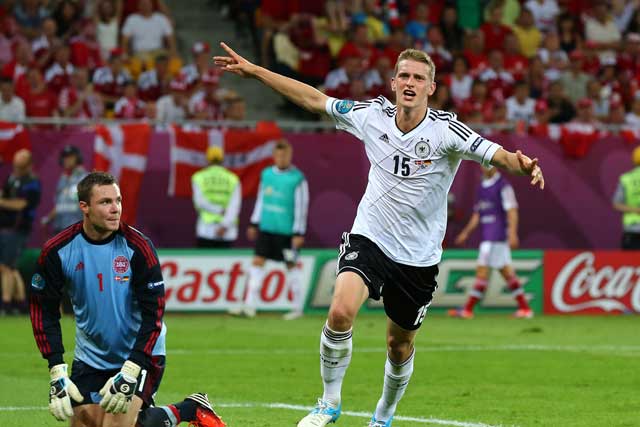
No-one is suggesting that TV traders bear grudges or anything - but buyers have never really forgotten the orgy of recrimination also known as the 2006 Fifa World Cup in Germany.
ITV was on a roll as regards big sporting tournaments back then. It had done rather nicely out of the 2002 World Cup, even though it was staged in South Korea and Japan and (because of the time difference) some fixtures fell into scheduling slots that were hardly ideal. Yet revenue for the month of the tournament was up by a handy 8 per cent year on year, much to shareholders' delight.
So ITV went into the 2006 event with very high hopes indeed, not least because it was being staged in a country with a time zone just one hour ahead. Audience levels might, as a consequence, be somewhat tasty. But the hype generated by ITV (and it was on a heroic scale) came back to bite it on the bottom. Advertisers and their agencies suspected that the market was about to overheat and they stayed away in their droves.
The only thing likely to overheat in the ad market that summer was the odd conversation between buyer and seller. You could, of course, argue that there were lessons to be learned here - and that broadcasters in particular might be expected to apply these lessons every time a big tournament such as Euro 2012 comes around. On the other hand, it must be nigh on impossible to convince sales people that they might make more headway if they curb their enthusiasm just a fraction. ITV is, after all, a bit like John Lewis - never knowingly undersold.
This time around, however, the big picture has been really rather confusing. Revenue prospects for June have been looking relatively robust - while July and August (which will be dominated by BBC coverage of the London 2012 Olympics) have looked weaker.
But, on the whole, are advertisers wary of a bumper summer of sport? Tragically, this seems to be the case, Andrew Stephens, the Goodstuff founding partner, says. There are understandable reasons, he concedes - advertisers are currently cautious and England's progress in Euro 2012 is far from certain.
But he adds: "A more truthful answer is that we agencies should be holding our hands up. We are employed to innovate, have greater creative ambition than brand owners themselves, challenge the way things are done, and then provide a client with sufficient reassurance to influence their stakeholders. Looking at the lack of innovation around Euro 2012 and the range of bland Euro brands on TV, I'd say we media and creative agencies have failed to turn up."
John Davidson, the head of trading at Starcom MediaVest Group, argues that big sporting events on TV are not nearly as important as they were in the past, when they were a dominant focus for the media marketplace.
He explains: "The world is just more complex these days. There's far more consideration about how activity fits into integrated campaigns and investment strategies. Communications plans are a lot more complex and there are a lot more choices. We're a lot less reliant on events like Euro 2012."
Absolutely, Richard Oliver, the managing partner, investment, at UM London, agrees. He concedes that many advertisers have learned to be wary of the TV market during big tournaments - but insists that they don't have to be.
He says: "Big sporting events will always deliver some big audience highs but, in totality, will only ever represent a small minority of total viewing during a tournament - and there will be lots of non-sporting options for viewers and advertisers alike. The evidence from recent sporting events is that advertising costs during sporting events generally represent great value versus other times of the year."
However, Mike Colling, the managing director of Mike Colling & Company, has a particularly interesting direct response take on the question. He says he has always predicted a significant market upheaval this summer, based on an analysis of viewer and response data during big events going back 12 years, including things such as last year's royal wedding as well as sporting tournaments.
He sums up: "If the sun ever comes out and you have a product related to barbecues, then you might have an argument for using TV. But direct response advertisers in, for example, financial services and travel will be significantly affected by the fact that DRTV response rates decline when we have a summer of big events. People have other things on their minds."
YES - ANDREW STEPHENS, FOUNDING PARTNER, GOODSTUFF
"Euro 2012 is a massive wasted opportunity. Why have we not seen a Nike spectacular, Yeo Valley cows playing keepy-uppy, live ads from the England base or King of Shaves challenging Gillette?"
NO - JOHN DAVIDSON, HEAD OF TRADING, STARCOM MEDIAVEST GROUP
"Big events like sporting tournaments have become less relevant as a whole. And, in any case, you now have the digital universe if mainstream TV is overheating. Plus, there are so many other types of events you can associate yourself with."
MAYBE - RICHARD OLIVER, MANAGING PARTNER, INVESTMENT, UM LONDON
"Advertisers can be forgiven if they sometimes believe that, during the summer, we will only be watching football or the Olympics, or that ad revenues will spike and ad costs soar. So it falls to agencies to debunk a few myths."
YES - MIKE COLLING, MD, MIKE COLLING & COMPANY
"We've been predicting that DRTV response will be down 30-50 per cent this summer. Response rates always tend to decline when people have other things to think about."

